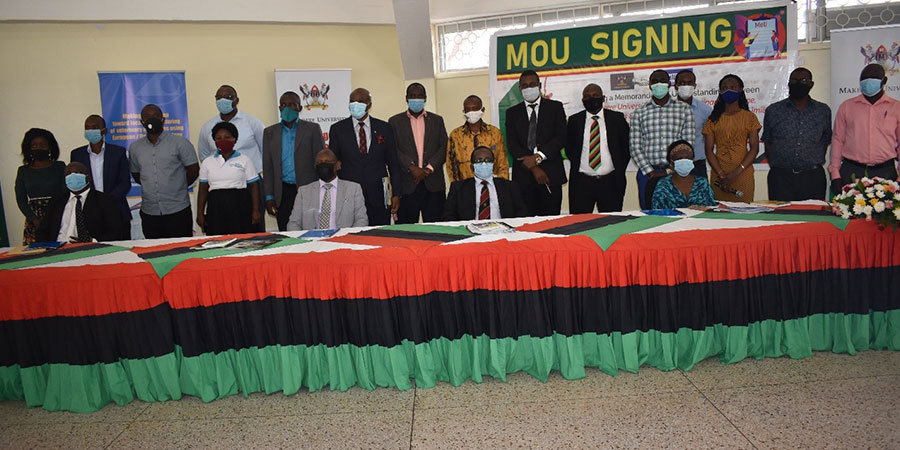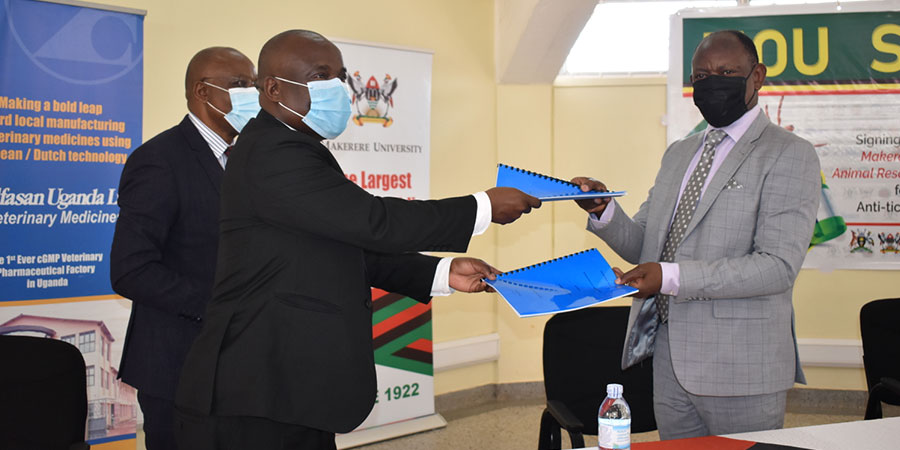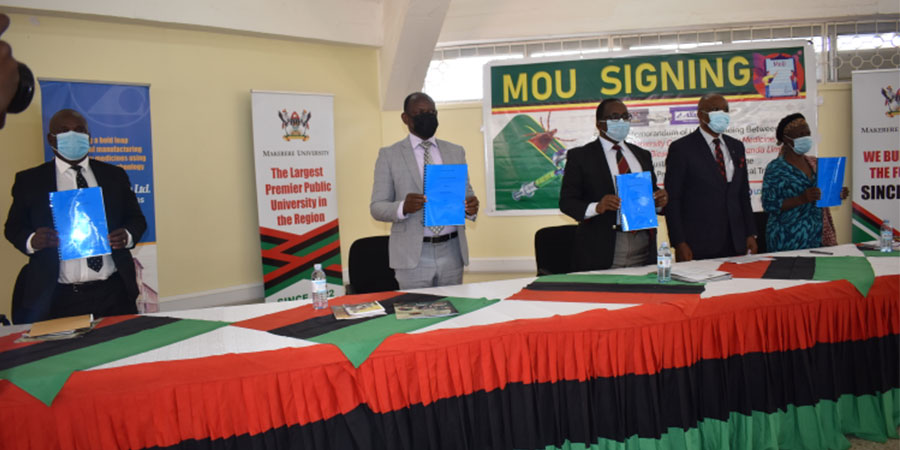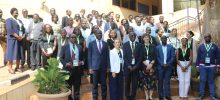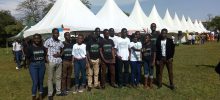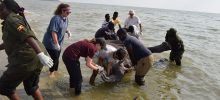COVAB and ALFASAN Uganda Limited in joint Initiative to address the problem of Ticks and Tick-Borne diseases in South-Saharan region of Africa
On 19th March 2021 Makerere University through COVAB signed a Memorandum of Understanding with Alfasan Uganda Limited as one of the joint initiatives to address the problem of ticks and tick-borne diseases in Uganda, and across the South Saharan region of Africa.
During a signing ceremony which was held at the college Center for Biosecurity and Global Health, the Principal Investigator of the Anti-Tick Vaccine Project, Prof. Margaret Saimo Kahwa, who is also a researcher in the area of ticks and tick-borne diseases, assured delegates about the project’s use of biotechnology in development of this vaccine to avert tick-borne challenges in livestock.
“We are able to protect farmers’ livestock with the help of our scientists who are applying bi-technology approaches to develop the anti-tick product. This same approach was successfully used in Juba, South Sudan and tick-borne challenges managed to be reduced by 80%,” affirmed Prof. Saimo.
Africa is currently experiencing the fastest rate of population growth globally while its agriculture and livestock production are amongst the least productive, and yet, the drastically increasing populations are highly dependent on livestock such as cattle, sheep, goats, and pigs among others for proteins. Ticks and tick-borne diseases are some of the challenges which are currently reported to affect livestock production. It is therefore important to note that improving food security while safeguarding the health of animals presents an economic obstinate challenge which requires joint multidisciplinary efforts to be solved.
CoVAB scientists with support from government identified vaccine candidate proteins from the local ticks which they exploited to produce an anti-tick vaccine. The Anti- Tick Vaccine candidate proteins are simply injected in the animals.
The Managing Director of Alfasan Uganda Limited, Dr. Stephen Birungi commended COVAB for recognizing the need to fight the universal challenge of tick-borne diseases in the region. He also appealed to the Government of Uganda to increase on research funding in universities such that many other problems which the country is grappling with can be addressed.
The Vice Chancellor of Makerere University, Prof. Barnabas Nawangwe commended the Anti-Tick Vaccine Project team for their endeavors in solving problems affecting the country economically. He affirmed that this research continues to position Makerere University as an institution high in her research capacity.
The Vice Chancellor also named the Anti-Tick Vaccine Project as one of the most developed scientific endeavors in Africa. He as well appreciated the collaboration between MAK-COVAB and Alfasan Uganda Limited, emphasizing that with the need for more innovation, it is inevitable for private-public sector collaboration to contribute to Uganda’s economic growth.
He further appreciated the Government of Uganda for funding Makerere University’s research. He also appreciated the leadership of Prof. John David Kabasa which has reinforced the conduction of research and academia- private sector collaboration.
The Anti- Tick Vaccine project further aims at developing an effective, affordable and safe anti-tick vaccine that will reduce acaricide use, and protect cattle from risk of acaricide resistant ticks, which will in turn encourage investment in the agricultural sector, increase food security, household income and a multiplier effect on export of livestock products.
COVAB embarked on averting the challenge of ticks and tick-borne diseases in livestock through the development of an Anti-Tick Vaccine which will be manufactured by Alfasan Uganda Limited, a manufacturer and distributor of veterinary and human medicine.
PICTORIAL
- Prof. Barnabas Nawangwe and Dr. Stephen Birungi exchange signed MOUs after the signing ceremony on 19th March 2021 in the COVAB Center for Bosecurity and Global Health.
- Makerere University Leadership, COVAB Administrators and Staff, Alfasan Uganda Limited Administrators together with the Anti-Tick Project Team and Partners pose for a group photo after the MOU Signing Ceremony at the Center for Biosecurity ad Global Health on 19th March 2021.
- (Right to Left), Prof. Saimo Margaret Kahwa, Prof. John David Kabasa, Prof. Barnabas Nawangwe and Dr. Stephen Birungi presenting the MOU after the signing ceremony.


